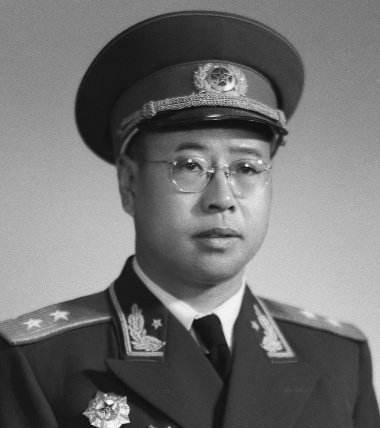Who is the founder of Tunnel Warfare? Some people said it was Cheng Zihua, and some people said it was Lu Zhengcao. The two of them had one thing in common, having fought in the Jizhong region of northern China. Tunnel warfare arose in the Central Hebei Plain.
Cheng Zihua was later the commander of the corps, and Lü Zhengcao was the founding general, although both of them had great achievements, but neither of them was the founder of tunnel warfare. Inventing tunnel warfare was a lesser-known legendary general named Kuang Fu Zhao. The name is very unusual.
Kuang Fuzhao was a newcomer to Yongxin in Jiangxi, born into poverty, and when he was seven years old, he carried a basket and picked up ears of wheat, sweet potatoes, beans and so on in the crop fields. I used to do this job when I was a child, and only people who didn't have food would go to the crops to pick up something to eat.

Yongxin is very close to Jinggangshan, so when he was very young, Kuang Fuzhao had seen the Red Army, he knew that the Red Army was a team for the poor to fight the world, and the idea of becoming a Red Army germinated in his heart. In 1933, Kuang Fuzhao officially joined the Red Army, and he was assigned to the Red Eighth Army as a squad leader.
During the Long March, Kuang Fuzhao served as a battalion commander in the Red Sixth Army led by Xiao Ke. So, how did Kuang Fuzhao come to the Jizhong region? After the end of the Long March, Kuang Fuzhao entered the Study of Kang Da. When the War of Resistance broke out, they also had to go to the front. On the prime minister's recommendation, Kuang Fuzhao went to Cheng Zihua to work.
Cheng Zihua fought in the Jizhong region and served as the political commissar of the Jizhong Military Region, so Kuang Fuzhao also came to Jizhong and served as the political commissar of the security brigade of the Jizhong Military Region. Jizhong was a occupied area, and the Japanese army often swept wildly in this area, and the situation of the struggle was very grim.
Moreover, Jizhong is a plain, and the plain area has no danger to defend at all, unlike the mountainous area, we can hide in the mountains to fight guerrillas. How should the plains area establish a base area and negotiate with the Japanese army? Once, the Japanese army suddenly swept through, and there was nowhere to avoid it, so it hid in the chicken coop of the common people, and was not discovered by the little devils.
Inspired by this, why not dig tunnels? Kuang Fuzhao first conducted a pilot project in Minanzhuang, dug a concave tunnel, and sealed the opening of the cave with a wooden box, so as to prevent the enemy's poisonous gas and smoke bombs. Some people have to ask, how does the tunnel ventilate the water supply?
The wisdom of the Eighth Route Army is infinite. Kuang Fuzhao cleverly used the people's chimneys, connected the tunnels and chimneys as ventilation ports, and then connected them to the wells, thus solving the problem of water supply. Of course, tunnels are still tools for fighting.
Inside the tunnel, there were multiple fire points, firing holes, and on the only way for the Japanese puppet army, the Eighth Route Army attacked them. After the success of the pilot, Kuangfuzhao quickly promoted tunnels in the Jizhong area, and finally built a strong underground transportation network connected by courtyards and villages.
Kuang Fu Zhao called it "the three links between heaven and earth and yin". Later, warehouses, hospitals, factories, and so on were built in the tunnels, and the Jizhong Plain base area was stubbornly generated. The nationally famous movie "Tunnel Warfare" was created based on this real historical background.
So, what happened to KuangFu Zhao later? Although he is not very famous, he is also very powerful. During the Liberation War, Kuang Fuzhao served as the political commissar of the military and was the main general in the North China Battlefield. After the founding of the People's Republic of China, he also served as the acting political commissar of the Corps and was awarded the title of founding lieutenant general.
After returning from the Korean battlefield, Kuang Fuzhao once again became an "underground worker". What do you mean by that? You see, digging tunnels of course belongs to the "underground workers", I did not expect that Kuang Fuzhao served as the deputy minister of geology, looking for oil for the motherland, of course, oil can only go underground to find, Kuang Fuzhao can not become an "underground worker" again?
In addition to oil, Kuangfuzhao also dug out coal and iron and other minerals, but dug up a lot of treasure for the motherland.